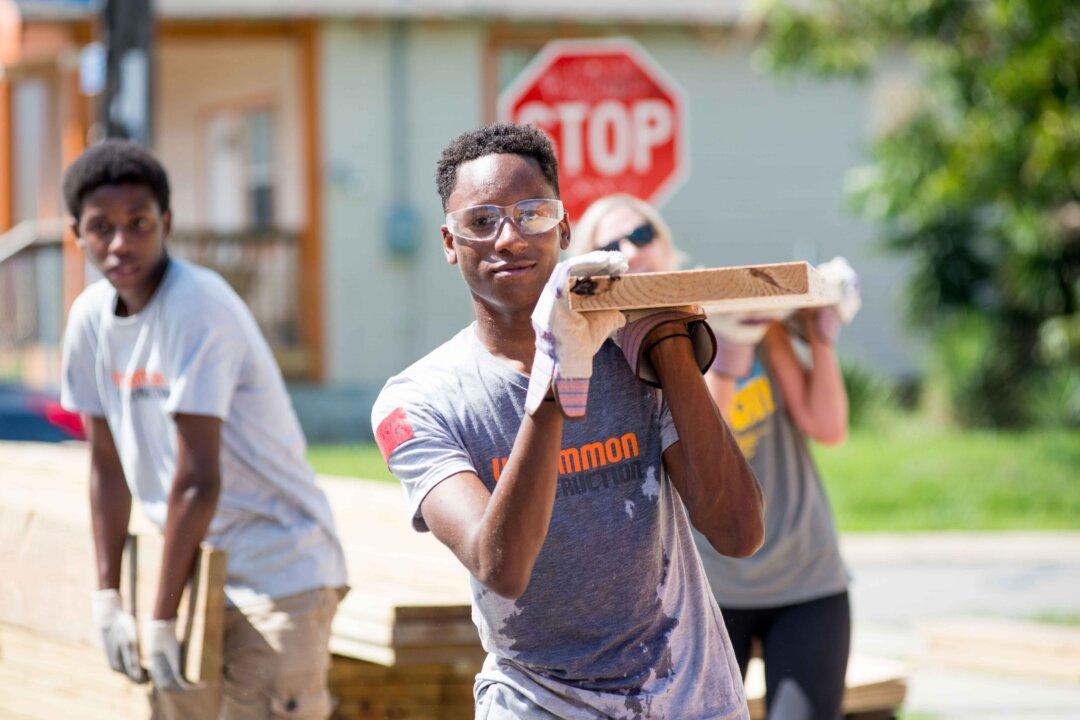Learning how to apply the Pythagorean theorem while on a construction site, earning competitive wages per hour, all while working toward a matching scholarship that can be used for future tuition or employment needs—this is the model by which unCommon Construction hopes to encourage youth to explore a career in the trades, and break stereotypes about the industry.
Aaron Frumin, founder of the New Orleans-based after-school program for high school students, unexpectedly found his way into the construction industry. He went to a standard, four-year college after graduating high school, but he dropped out in his third year when he was unsatisfied with the education he was getting. When Hurricane Katrina devastated New Orleans, Frumin traveled there to help out as a Red Cross volunteer. He ended up working as a day laborer on a construction site, and he stayed in the city. “I was using my brain and I was using math skills and engineering principles and social skills. I was making good money. … No one would have ever thought of that career path for me,” Frumin said. He later went into teaching, and while working as a reading and social studies teacher in middle school, he realized the traditional classroom experience was not for him.






